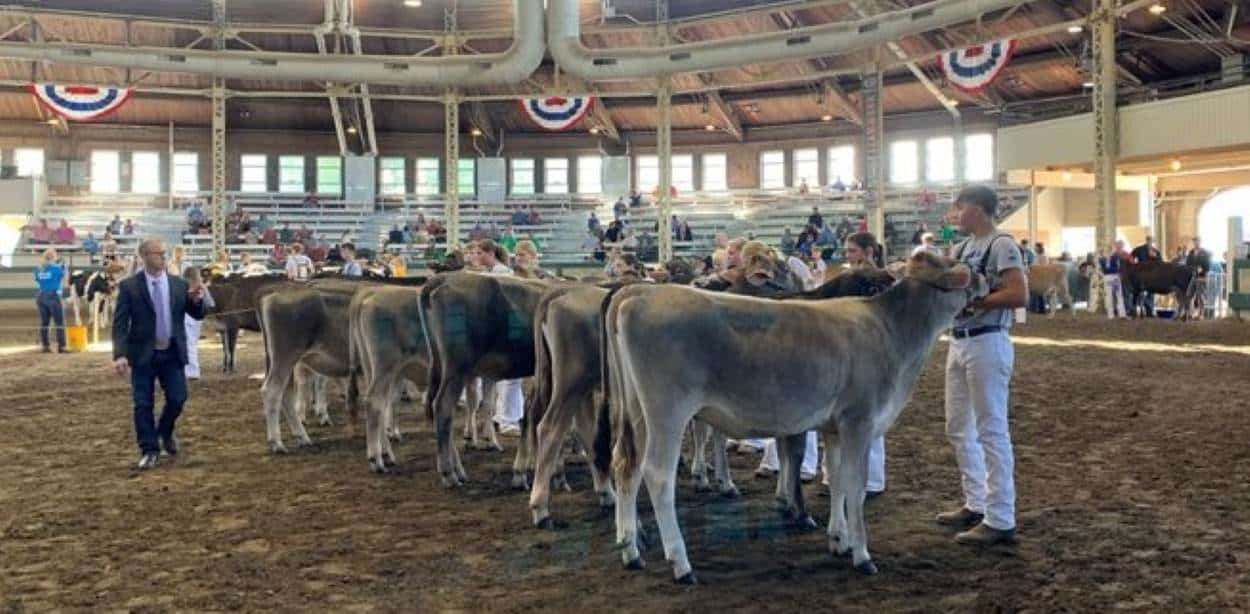Michigan dairy workers and herds have contracted bird flu, and two unique cows named Milkshake and Buttercup are set to star at the state fair. These life-sized fibreglass cows, equipped with rubber teats and water-filled udders, are prepared for a popular milking demonstration.
Similarly, the Minnesota State Fair’s Moo Booth introduced a fake dairy cow named Olympia for its interactive milking event. “Normally, we’d have a real cow,” said Jill Nathe, the fair’s deputy general manager of agriculture and competition. “We just can’t do that right now.”
As avian influenza continues to impact cattle for the first time this year, affecting four dairy workers, U.S. fair organizers are rethinking long-held summer traditions. The virus has compelled farmers and students to comply with new testing regulations and tackle logistical challenges to ensure their animals are healthy for competitions.
Some county fairs in Michigan have cancelled dairy shows, and the Iowa State Fair closed its milking barn due to the risk of the virus spreading. In response, Minnesota State Fair staff secured extra protective gear for their livestock crew and excluded pregnant dairy cows from the fair’s birthing centre.
In Wisconsin, state requirements mandate that lactating cattle test negative for the virus within seven days of fair arrival. Dairy farmer Rick “RT” Thompson highlighted the logistical challenges, noting the precise timing needed for testing to meet fair deadlines. His vet’s wife even transported samples directly to ensure timely testing.
“It’s not a convenient thing,” Thompson said, reflecting on his 46-year attendance at Wisconsin’s state fair.
Michigan has prohibited lactating cows from public exhibitions until the state records two months free from infections. With the state fair only occurring once a year, opportunities for 2024 have passed following recent infections.
At the Wisconsin State Fair, veterinarians inspect cattle before disembarking from trailers, ensuring they arrive healthy—an adjustment from previous practices. Despite the risk of bird flu, sisters Jennifer and Bethany Droessler from Cuba City, Wisconsin, brought non-lactating cattle to the fair for interaction with attendees.
Read: WHO Confirms First Human H5N2 Bird Flu Death in Mexico
Jennifer Droessler expressed optimism: “We’ll aim for next year, and hopefully, it won’t be an issue. “
Since March, over 190 dairy herds nationwide have been infected, and 13 farm workers have tested positive following exposure. Fortunately, all have recovered. Despite the CDC’s low-risk assessment for the general public, it advises against eating or drinking near animal areas at fairs.
Yet, many fairgoers in Wisconsin, a leading milk and cheese producer, remain unconcerned about these guidelines. O.E. Glieber, 88, from Delafield, Wisconsin, expressed trust in the precautions, “I don’t think it’s a big risk. The CDC overreacts with a lot of stuff.”






